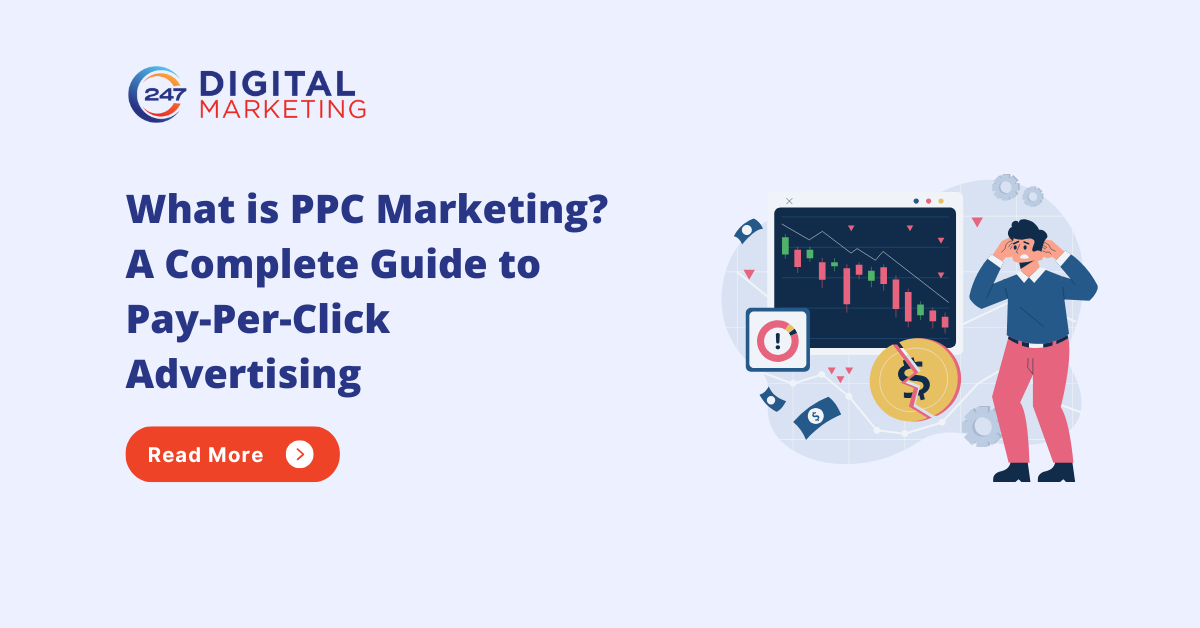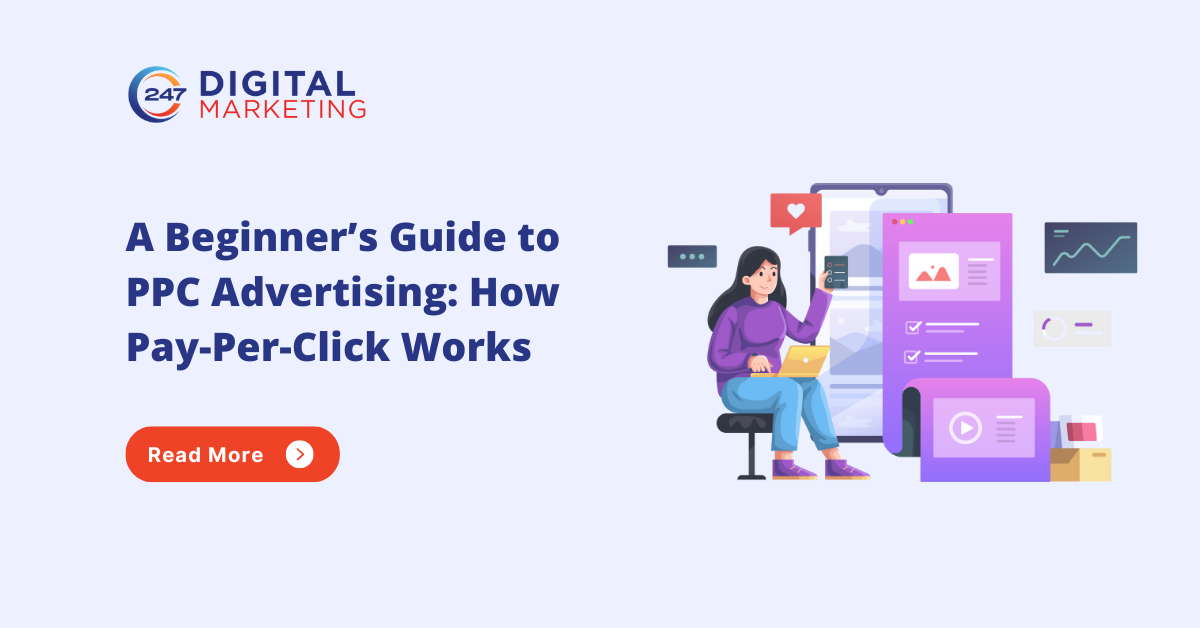Master PPC Keywords - Research, Targeting, and Optimization

Strong 8k brings an ultra-HD IPTV experience to your living room and your pocket.
There's no denying the crucial role that keywords play in the success of your PPC campaigns. In this comprehensive guide, you'll learn how to master the art of PPC keyword research, targeting, and optimization. By following these expert strategies, you'll be able to drive more targeted traffic to your website, increase your conversion rates, and ultimately, maximize your ROI. Let's dive in and take your PPC campaigns to the next level!
Key Takeaways:
- Keyword Research: Conducting thorough keyword research is vital for identifying the most relevant and high-performing keywords for your PPC campaigns.
- Targeting: Utilize targeting options such as match types, negative keywords, and location targeting to optimize your PPC campaigns and reach the right audience.
- Optimization: Regularly monitor and optimize your PPC keywords by analyzing performance data, testing new keywords, and refining your targeting to improve campaign effectiveness.
Keyword Research Fundamentals
Identifying Relevant Keywords
Before stepping into PPC campaigns, it is crucial to identify the most relevant keywords for your business. Keywords are the building blocks of your PPC strategy, and choosing the right ones can make or break your campaign's success. Start by brainstorming a list of terms that are relevant to your products or services. Put yourself in your customers' shoes and think about what they would search for when looking for what you offer.
Next, use keyword research tools like Google Keyword Planner, SEMrush, or Ahrefs to expand your list and discover new keyword opportunities. These tools can provide valuable insights into search volume, competition level, and potential costs per click. By analyzing this data, you can prioritize high-performing keywords that align with your business goals and target audience.
Remember that the goal is not just to find popular keywords but to identify relevant terms that will attract qualified leads to your website. Look for keywords with a balance of search volume and competitiveness, ensuring that they are specific enough to reach your target customers effectively.
Tools for Keyword Research
To enhance your keyword research process, various tools are available to assist you in discovering valuable insights. These tools can streamline your efforts and provide in-depth data to guide your keyword selection. Platforms like Google Keyword Planner, SEMrush, and Moz Keyword Explorer offer comprehensive keyword suggestions, search volume trends, and competitive analysis to refine your keyword strategy.
Additionally, using tools like SpyFu or KeywordSpy allows you to gain valuable insights into your competitors' keywords and strategies. By analyzing their keyword choices and performance, you can uncover new opportunities and optimize your own campaigns accordingly. Leveraging these tools can give you a competitive edge and help you stay ahead in the PPC landscape.
By combining the power of keyword research tools with your strategic insights, you can create a robust keyword list that drives targeted traffic to your website. Continuously monitoring and adjusting your keyword strategy based on performance data is key to optimizing your PPC campaigns and maximizing your ROI.
Analyzing Competitor Keywords
A crucial aspect of keyword research is analyzing your competitors' keyword strategies to gain a competitive advantage. By understanding which keywords your competitors are targeting and how they are performing, you can identify gaps in the market and refine your own keyword selection. This competitive analysis allows you to tailor your PPC campaigns effectively and target keywords that align with your business objectives.
Tools such as SEMrush, SpyFu, and Ahrefs offer features that enable you to track your competitors' keywords, ad copy, and performance metrics. By studying their keyword rankings, ad spend, and click-through rates, you can uncover valuable insights to inform your own strategy. This data-driven approach empowers you to make informed decisions and fine-tune your keyword targeting for maximum impact.
Keep in mind that while analyzing competitor keywords is imperative, it is equally important to differentiate your strategy and focus on unique selling points that set your business apart. By combining competitive intelligence with your unique value proposition, you can create a compelling PPC campaign that resonates with your target audience and drives conversions effectively.
Advanced Keyword Research Techniques
Assuming you have mastered the basics of keyword research, it's time to take your PPC campaigns to the next level with advanced techniques. Here are some advanced keyword research strategies to help you optimize your campaigns effectively:
- Long-Tail Keywords
- Using Negative Keywords
- Keyword Clustering and Grouping
Long-Tail Keywords and Their Benefits
For more targeted and cost-effective PPC campaigns, consider incorporating long-tail keywords into your strategy. These are highly specific phrases that may have lower search volumes but often lead to higher conversion rates. By targeting long-tail keywords, you can reach potential customers who are further along the purchasing journey and have a clearer intent. This can result in lower competition and more qualified traffic to your website. Furthermore, long-tail keywords help improve your Quality Score, as they are more relevant to the searcher's query. This can lead to lower CPCs and higher ad positions, ultimately maximizing your ROI. By analyzing search query reports and leveraging tools like Google Keyword Planner or SEMrush, you can identify valuable long-tail keywords to incorporate into your campaigns and drive better results. In addition, long-tail keywords are excellent for voice search optimization, as they mimic natural language queries. With the rise of voice-activated devices and virtual assistants, optimizing your PPC campaigns for long-tail keywords can help you stay ahead of the curve and connect with users in a more conversational manner.
Using Negative Keywords Effectively
Research has shown that using negative keywords can significantly improve the performance of your PPC campaigns by reducing irrelevant clicks and improving CTR. Negative keywords help you filter out irrelevant traffic and focus your ad spend on valuable prospects who are more likely to convert. By analyzing search terms that trigger your ads and identifying irrelevant terms, you can create a comprehensive list of negative keywords to exclude from your campaigns. Advanced negative keyword strategies involve using match types (broad, phrase, exact) to refine your targeting and prevent your ads from showing for irrelevant searches. Regularly monitoring and updating your negative keyword list is crucial to ensure your ads are shown to the most relevant audience. By continuously optimizing your negative keywords, you can improve ad relevance, click-through rates, and ultimately, your campaign performance. With the help of advanced PPC tools like Negative Keyword Pro, you can automate the process of identifying and adding negative keywords to your campaigns. These tools analyze search terms and suggest potential negative keywords based on performance data, saving you time and effort in managing your PPC campaigns effectively. By leveraging automation and technology, you can streamline your negative keyword strategy and improve the overall efficiency of your campaigns.
Keyword Targeting Strategies
Once again, you find yourself entering into the world of keyword targeting strategies, a crucial element in your PPC campaigns. Your success in pay-per-click advertising heavily relies on your ability to target the right keywords effectively. One key aspect to consider is your ad group structure and organization.
Ad Group Structure and Organization
To achieve optimal results, creating a well-structured ad group is important. Your ad groups should be tightly themed around specific keywords and topics related to your products or services. By organizing your keywords into relevant ad groups, you can create highly targeted ads that resonate with your audience's search intent. This not only improves your click-through rates but also enhances the overall quality score of your ads, leading to lower costs and better ad placements. When setting up your ad groups, ensure that each group has a clear focus and contains a set of closely related keywords. By keeping your ad groups tightly themed, you can craft compelling ad copy that speaks directly to the user's search query. This level of relevancy in your ads can significantly increase the likelihood of clicks and conversions, ultimately maximizing the effectiveness of your PPC campaigns.
Keyword Matching Options and Best Practices
For better control over which searches trigger your ads, you must understand the different keyword matching options available. Broad match, phrase match, exact match, and broad match modifier each offer varying levels of targeting precision. Broad match casts the widest net, including synonyms and related searches, while exact match hones in on specific search queries. Using a mix of these matching options in your campaigns allows you to reach a broader audience while still maintaining relevancy. Targeting your keywords with the right match types also plays a crucial role in optimizing your ad spend. By analyzing search terms and adjusting your match types accordingly, you can weed out irrelevant traffic and focus your budget on high-converting keywords. Regularly reviewing your keyword performance and refining your matching options based on data insights will help you continuously optimize your PPC campaigns for maximum effectiveness.
Targeting:
Understanding the nuances of keyword matching options is key to refining your PPC campaigns. By leveraging different match types strategically, you can strike a balance between reach and relevance, ensuring that your ads are shown to the most qualified audience. Experimenting with match types and closely monitoring their performance can lead to significant improvements in your campaign's overall efficiency and ROI.
Bidding Strategies for Maximum ROI
Bidding smartly on your chosen keywords is pivotal to achieving a high return on investment in your PPC endeavors. Your bidding strategy should align with your campaign goals, whether it's maximizing clicks, conversions, or staying within a specific budget. Implementing a mix of manual and automated bidding strategies can help you adapt to changing market dynamics and competitor activities effectively. Bidding strategically also involves monitoring and adjusting your bids based on real-time data and performance metrics. By identifying top-performing keywords and allocating more budget to them, you can capitalize on opportunities for increased traffic and conversions. Additionally, leveraging bid modifiers for device, location, and time of day allows you to fine-tune your bids for different audience segments, enhancing the profitability of your campaigns.
Options:
By exploring various bidding strategies and experimenting with bid adjustments, you can discover the optimal approach that yields the best results for your PPC campaigns. Whether you choose to focus on manual bidding for granular control or utilize automated bidding for efficiency, the key lies in continuous refinement and optimization based on performance insights. This iterative approach to bidding will empower you to maximize your return on investment and drive sustainable growth in your digital advertising efforts.
Keyword Optimization for Ad Copy
Crafting Compelling Ad Headlines
After conducting thorough keyword research and selecting the most relevant and high-performing keywords for your PPC campaign, it's imperative to optimize your ad copy to increase click-through rates. Crafting compelling ad headlines is crucial as they are the first thing potential customers see when they come across your ad. Your headlines should be attention-grabbing, relevant to the keyword, and clearly communicate the value proposition of your product or service.
The key to a successful ad headline is to make it clear and actionable. Use strong, persuasive language that entices users to click on your ad. Incorporate power words like "exclusive," "limited time," or "free" to create a sense of urgency and excitement. By aligning your headline with the user's search query, you can improve ad relevance and attract more qualified leads to your website.
Remember to A/B test different variations of your ad headlines to see which ones resonate best with your target audience. By analyzing the performance data, you can refine your headlines further to optimize for higher click-through and conversion rates.
Writing Persuasive Ad Descriptions
The meat of your ad copy lies in the ad description. This is where you have the opportunity to expand on the value proposition presented in the headline and compel users to take action. Your ad description should provide more details about your product or service, highlight key benefits, and include a strong call-to-action that prompts users to click on your ad.
The ad description should be concise yet informative. Focus on addressing the user's pain points and positioning your offering as the solution they've been looking for. Use language that speaks directly to your target audience and conveys a sense of trust and credibility. Incorporate relevant keywords naturally into your ad description to improve ad relevance and quality score.
Furthermore, include any unique selling points, promotions, or special offers to make your ad stand out from competitors. By creating a sense of value and urgency in your ad description, you can increase the likelihood of users clicking through to your website and completing a desired action.
Copy.
Optimizing Display URLs and Extensions
URLs. After you've crafted compelling headlines and descriptions, don't overlook the importance of optimizing your display URLs and extensions. While display URLs may not directly impact ad performance, they contribute to the overall user experience and can influence click-through rates. Make sure your display URL is clean, concise, and relevant to the landing page to reassure users that they will find what they're looking for.
Extensions. Additionally, take advantage of ad extensions to provide users with more information and additional links to relevant pages on your website. Utilize sitelink extensions to showcase specific product categories or services, callout extensions to highlight key benefits or promotions, and structured snippet extensions to provide more details about your offerings.
By optimizing your display URLs and leveraging ad extensions effectively, you can enhance the visibility and appeal of your ads, leading to higher click-through rates and improved ad performance.
Keyword.
Landing Page Optimization for PPC
Creating Relevant and Targeted Landing Pages
For a successful PPC campaign, creating relevant and targeted landing pages is crucial. Your landing page should directly relate to the keywords and ad copy that users clicked on. Ensure that your landing page provides the exact information or offer promised in the ad to maintain consistency and build trust with your audience. Tailor the content on your landing page to match the search intent of the user to increase the chances of conversion.
By aligning your landing page with the user's expectations, you can improve the overall user experience and encourage visitors to take the desired action, whether it's making a purchase, signing up for a service, or downloading a resource. Keep the design clean and visually appealing, with a clear call-to-action (CTA) that stands out. Test different variations of your landing page to see what resonates best with your audience and drives the highest conversions.
Remember to optimize your landing page for mobile devices to cater to users who access your site on smartphones or tablets. Responsive design and fast load times are imperative for a positive mobile experience. By focusing on creating relevant, targeted, and user-friendly landing pages, you can maximize the effectiveness of your PPC campaigns and improve your return on investment.
Optimizing Landing Page Elements for Conversions
An optimized landing page can significantly impact your conversion rates. Start by analyzing your landing page elements such as headlines, copy, images, forms, and CTAs. Your headline should be attention-grabbing and clearly communicate the value proposition to entice visitors to stay on the page. Your copy should be concise, persuasive, and highlight the benefits of your offer.
Utilize high-quality images or videos to enhance the visual appeal of your landing page and showcase your product or service. Make sure your forms are easy to fill out and only ask for imperative information to minimize friction. Your CTA should be prominent, compelling, and clearly indicate the next step you want the visitor to take. A/B testing different elements can help you identify what combinations drive the best results and optimize your landing page for maximum conversions.
Understanding the psychology of your audience can also play a crucial role in optimizing your landing page elements for conversions. By knowing your target market's pain points, desires, and motivations, you can tailor your messaging to resonate with them on a deeper level and compel them to take action. Continuously monitor and analyze your landing page performance to make data-driven decisions and refine your approach for better results.
Mobile-Friendliness and Page Speed Considerations
Elements such as mobile-friendliness and page speed are critical considerations for optimizing your landing pages. With the increasing use of smartphones for online searches, having a mobile-responsive landing page is imperative to provide a seamless experience for mobile users. Make sure your landing page is optimized for various screen sizes and loads quickly on mobile devices to prevent visitors from bouncing due to slow loading times.
Ongoing Keyword Optimization and Refining
Unlike the initial keyword research phase, ongoing optimization and refining of your PPC keywords are crucial for ensuring your campaign's effectiveness. Monitoring keyword performance and analytics regularly is key to maintaining a high-performing campaign.
Monitoring Keyword Performance and Analytics
Keyword performance can fluctuate over time due to various factors such as shifts in market trends, seasonality, or competitor activity. By regularly analyzing the performance of your keywords using tools like Google Analytics or the ad platform's own analytics, you can identify underperforming keywords that may need to be paused or optimized further.
Ensure you track metrics such as click-through rate (CTR), conversion rate, and cost per acquisition (CPA) for each keyword to gauge their effectiveness. By monitoring these key metrics, you can make informed decisions about which keywords to keep, pause, or expand upon to improve the overall performance of your PPC campaign.
Regularly reviewing and analyzing keyword performance data allows you to make data-driven decisions to optimize your PPC campaign effectively. By staying agile and responsive to performance insights, you can continuously refine your keyword strategy to drive better results and ROI.
Identifying and Addressing Keyword Gaps
Optimization also involves identifying and addressing keyword gaps in your campaign. Keyword gaps refer to missed opportunities where your ads are not showing up for relevant search queries that your target audience is using.
By conducting regular keyword gap analyses using tools like SEMrush or SpyFu, you can uncover new keyword opportunities to expand your reach and visibility. Look for search terms that your competitors are targeting successfully but you may have overlooked to fill these gaps in your own keyword strategy.
Addressing keyword gaps ensures that you are capturing a broader range of relevant search queries, maximizing your campaign's potential reach and performance. By continuously refining your keyword list to include these missed opportunities, you can enhance the overall effectiveness of your PPC campaign.
Refining Ad Targeting and Bidding Strategies
Optimization of your PPC campaign goes beyond just keywords; refining your ad targeting and bidding strategies is also crucial for maximizing your campaign's performance. By analyzing ad performance data and adjusting your targeting parameters, you can improve the relevance and effectiveness of your ads.
Refining your bidding strategies involves adjusting your bid amounts based on keyword performance, competition levels, and campaign goals. By regularly monitoring and optimizing your bids, you can ensure that you are bidding competitively to attain the desired ad placements and maximize your ad spend efficiency.
It's imperative to test different ad creatives, targeting options, and bidding strategies to find the optimal combination that yields the best results for your campaign. By continuously refining your ad targeting and bidding strategies based on performance data, you can enhance the overall effectiveness of your PPC campaigns and drive better outcomes.
Summing up
Presently, you have learned the necessary concepts of mastering PPC keywords - research, targeting, and optimization. By understanding the importance of thorough keyword research, precise targeting, and continuous optimization, you are well-equipped to create successful PPC campaigns. Remember to focus on long-tail keywords, negative keywords, and competitor analysis to refine your keyword strategy and improve ad relevance. By continuously monitoring and optimizing your keyword performance, you can increase your click-through rates, improve quality scores, and ultimately drive more conversions for your business.
Additionally, you now know the significance of testing different keyword match types, creating compelling ad copy, and utilizing ad extensions to enhance the effectiveness of your PPC campaigns. By leveraging tools like Google Keyword Planner, SEMrush, and SpyFu, you can uncover valuable insights to refine your keyword strategy and stay ahead of the competition. Consistent monitoring of key metrics such as click-through rate, conversion rate, and cost-per-click will allow you to make data-driven decisions and maximize the ROI of your PPC campaigns.
In short, mastering PPC keywords requires a strategic approach, continuous learning, and a commitment to optimization. By implementing the techniques outlined in this article and staying updated on the latest trends in digital marketing, you can take your PPC campaigns to the next level and achieve your business goals. Note, practice makes perfect - so don't be afraid to experiment, test different strategies, and fine-tune your keyword targeting to drive success in your PPC campaigns. Good luck!
Q: What is PPC keyword research?
A: PPC keyword research is the process of identifying and selecting the most relevant keywords that users are likely to use when searching for products or services offered by a business. These keywords are then used in pay-per-click advertising campaigns to target specific audiences and drive quality traffic to a website.
Q: How do you optimize PPC keywords?
A: To optimize PPC keywords, you should regularly review and refine your keyword list based on performance data, such as click-through rates, conversion rates, and cost per click. You should also group related keywords into ad groups, create compelling ad copy, and test different keyword match types to improve campaign performance.
What are some tools for PPC keyword research?
A: Some popular tools for PPC keyword research include Google Keyword Planner, SEMrush, Ahrefs, and SpyFu. These tools can help you identify new keyword opportunities, analyze competitors' keywords, and estimate search volumes and competition levels for different keywords.
Note: IndiBlogHub features both user-submitted and editorial content. We do not verify third-party contributions. Read our Disclaimer and Privacy Policyfor details.








